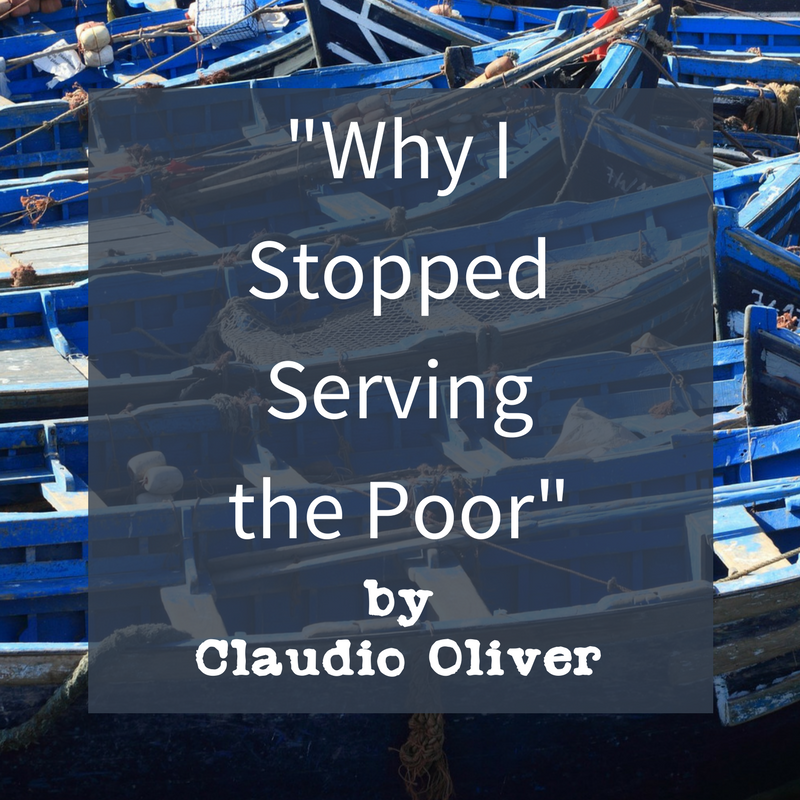|
This guest post is written by Eliza Stewart. Eliza (she/her) is a young South African with a USA passport taking a year between high school and the rest of her life to do some travelling, learning, and listening. 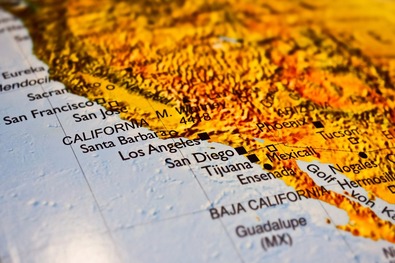 What does it mean to travel to a place, not to consume it, but just to be there? I don’t want to go somewhere because I feel entitled to because my mom was born within the borders of the “USA” and I have access to it legally because of my passport. I want to think about the places I’m going beyond what they can do for me and my gap year. I will grow more from my gap year if it is not completely focused on me, which might seem ironic to those of us who’ve been taught gap years are meant for us to find ourselves. I just finished reading Harsha Walia’s book Border & Rule, a book which investigates the function of borders - politically, socially, culturally and economically. And as a South African currently traveling in the USA so much around me has me thinking about borders. Thinking about how easily I move through borders. Thinking about why I am, because of my identity as a white person and a USA citizen, permitted to move so easily through borders. Thinking about the whole system. As a child you don’t really think about countries and borders and the whole system as anything but natural, but Walia and others have shown me a different way. Walia explains that the function of borders is to restrict the movement of people, while the movement of capital and goods is ensured. People are declared illegal, while the surplus value they produce never is. Humans and land are turned into commodities (made for exchange). The conversion of land into property is directly related to the conversion of people into property. Movement across borders, legal or illegal, is used in service of capitalists to accumulate capital. The border does not work against globalised capital, it works in service of it. Free capital requires bordered and immobilised labour. She says: Borders do not protect labor; the border is a bundle of relations and mode of governance acting as a spatial fix for capital to segment labor... Simply put, borders manufacture divisions within the international working class. Borders are exploited by the class-conscious ruling class through outsourcing and insourcing to weaken collective bargaining rights and working-class resistance to transnational capital and its austerity measures. One of my favourite YouTubers, Saint Andrew, quotes in his Abolish Borders video “The border is not just a wall. It’s not just a line on a map. It’s not any particular physical location. It’s a power structure, a system of control. The border is everywhere that people live in fear of deportation, everywhere migrants are denied the rights accorded citizens, everywhere human beings are segregated into included and excluded. The border does not divide one world from another. There is only one world, and the border is tearing it apart… In our ‘free’ and ‘post-colonial’ world what was once the norm is now criminalized...There is nothing necessary or inevitable about borders.” One example where this is happening is in Hawai’i. Indigenous Hawai’ians have been saying that they don’t want tourists on their land, especially right now. Hawai’ians are being asked to reduce their water usage due to intense water shortages while tourists are allowed to move freely over the land consuming and consuming. Hawai’i is seen as nothing but a pretty backdrop, and the people props, for vacations. It is the most basic level of respect to not travel to Hawaii right now, yet thousands of tourists are. I don’t want to be like them or think like them that I am entitled to go somewhere just because the border allows me to. (This is an amazing video from Haunani-Kay Trask that shows her response to the US American occupation of Hawai’i and her identity as a Hawai’ian). When I am old, I will tell you I remember learning about freedom beyond anthems and passports. And how we never went back once we knew the kind of love bound only by shorelines, prairie skies, and forest floors.” How do I travel through the world as one member of the tiniest group that has open access to the world’s borders? How do I travel not just being aware of the power I have because of how I am racialised, but as someone humbly coming into spaces as a guest? How do I interact with the world with all of these thoughts of borders, and entitlement, and division coming together? I don’t want to be an entitled traveler. I don’t want my gap year to be predatory. I don’t want to gain my own feelings of independence and growth through the harm of others. I don’t want people and places to just serve as props for my journey. I just don’t really know how to do this well. “In this new space one can imagine safety without walls, can iterate difference that is prized but unprivileged, and can conceive of a third, if you will pardon the expression, world ‘already made for me, both snug and wide open, with a doorway never needing to be closed.’ Home.” If you have thoughts about any of this, I would love to hear and discuss, email me [email protected] or message me on IG @lizatiser.
0 Comments
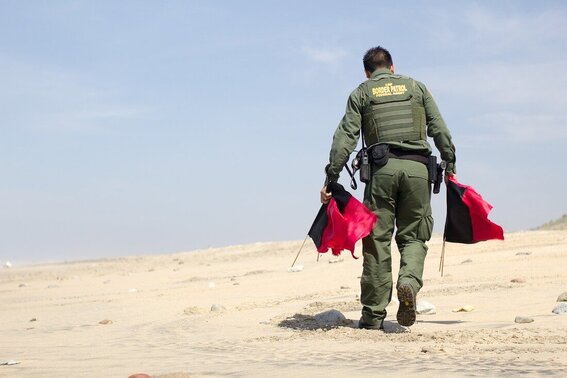 History is a wise ancestor who leads us, if we let her. District Judge Gee postponed the order to release migrant children held in detention facilities by ten days with a release date of July 27. DHS, this is your opportunity to intentionally keep families together. To make wrongs right. To carve a new path forward. From 1619 until 1865 we forcibly separated families in slavery. Children were legally allowed to be sold or traded without the permission of their parents. This was America. From 1860 until 1973 we forcibly separated Native American children from their families through boarding schools. Agents were paid a bounty for “rounding up kids to ship to the government boarding schools. Later… parents had to sign papers to let their children go ‘legally.’ Parents who refused could go to jail.” Binary choice made way for forced assimilation. This was America. In the 1930s during “Mexican Repatriation” children were left behind while parents were detained and deported. This was America. A decade later, 120,000 Japanese Americans were incarcerated in internment camps. In some cases, family members were separated and put into different camps. It was an executive order that legalized this version of America. In 2018, over 2,700 children were forcibly separated by you under the zero-tolerance policy. District Court Judge Sabraw issued an injunction against the separations in June 2018. International agencies called you out on human rights violations. And the American people were outraged. The America we wanted was not the one we saw. Two years ago, this was America. In each case, the dehumanization of human beings led to forced separation of families in the name of national security and capital gain. So I ask you, DHS, because you hold the power. Will you set America on a better path than her past has projected for her? Fulfill Judge Gee’s order by allowing families to leave detention centers together. Five-year-old Julia, my former foster daughter was separated first in Mexico from her biological mother. Smugglers held her mother hostage and forced her into prostitution. Julia was separated from her stepdad because of zero-tolerance. The power you wielded led to life-long trauma for their family. You have security forces in positions where social workers should be. Securing our safety as a nation involves upholding human rights, protecting our holistic wellbeing, and allowing those who seek safety to be first and foremost treated as human beings “endowed by their Creator with certain unalienable rights.” When, by July 27, you release these children to sponsorship families through the Office of Refugee Resettlement — which Julia went through — what then? Over half of low-income families in America are economically struggling in the U.S. right now due to COVID-19, and sponsorship families do not get a stipend like foster families do. Imagine taking a child into your home. What stresses would your family go through? Release families together. Let this be our America. Julia ended up in foster care because she was released to a home that was already struggling financially. As a foster parent who parented two American girls prior to Julia, family separation is achingly difficult, even when biological parents have abused or neglected their children. Foster care exists to reunite families as soon as possible with safety precautions around the children: good parenting standards in a safe and appropriate home. Why aren’t immigrant families afforded the same rights? Unless the detained immigrant parents are abusive, children should be released with their parents. Beyond the unnecessary trauma we are inflicting on these families, we know that alternatives to detention cost far less and community-based programming is far more humane than detention. If we separate families in the name of national protection at the cost of our souls, we are still the America we’ve always been. If we separate families for economic gain, how are we any different than the smugglers who do the same? Every time we separate families, we stunt our moral growth continuing our already-too-long legacy of dehumanization. We subject so many to the unnecessary but all-too-familiar trauma of family separation for the sake of an America we don’t want. Let us be an America known for reuniting families, not one that finds more subtle ways to tear them apart. For those vulnerable children being exploited,
or sought to be exploited—sexually, economically, or otherwise Lord protect them. Hedge their innocence. Be their Jehovah Shammah. Lord, hear our prayer. For those children that must work, whether by force or economic oppression, Protect their growing bodies, protect the health of their minds. Be their Jehovah Sabaoth. Lord, hear our prayer. For caregivers and parents, older siblings, aunts & uncles and grandparents Provide for these families. Be their Jehovah Jireh. Change laws & greedy rulers' hearts. Be their Jehovah Nissi. Lord, hear our prayer. For the dignity innate in every human being For the everlasting love you give all your children, Lord, let these children see and know and feel-- You are near and You are love. Be their Jehovah Rohi. Lord, hear our prayer. And for us, for those of us who can advocate for these children, equip us for this good work. That these children might know and see and love You more as they more deeply understand, Just how much You love them. Be all of our Jehovah Adonai. Lord, hear our prayer. 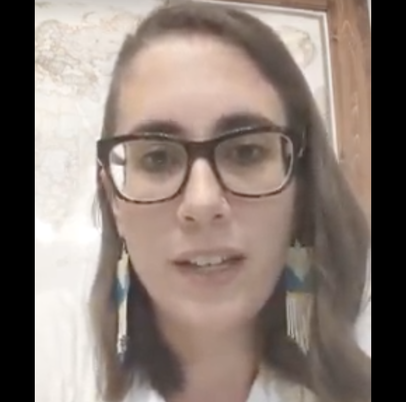 "No matter how hard you try to shake him, the god of scarcity is a sticky deity." — Alia Joy, Glorious Weakness. I struggle with how much I feed the god of scarcity when I greedily hoard my time. What do you hoard? What areas of your life is the god of scarcity an idol? And who is the God of Abundance? Can we trust him with everything? "Son, life is about sharing. Don't give what you have left over, rather share what you have now." — María Romero as quoted in Separated by the Border (out Oct. 29) Me.
I rub my forefinger along the line where no hair grows. I remember. My body was broken when I brought life into this world. Twice it broke. Twice it hurt. I am broken. Her. She has no scar, but she remembers. Her body was broken when she tried & tried to bring life into this world. A thousand times broken. And people who knew not what they did called her Barren. Broken. Ella. Her body is covered in scars, she will never forget. Her body was broken when she tried & tried to cross that border to bring life to the life she brought into the world. A thousand times broken. And people who knew not what they did called her Illegal. Broken. You. Your body keeps Love's score. We will never forget. Your body was bruised and broken and beaten as you brought life and light into the world. A thousand times broken. And people who knew not what they did called you Names. King of the Jews. Broken. King of my broken heart. King of the broken hearted. King of the broken. 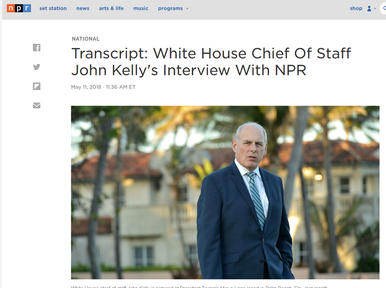 This is an article I tried to get published in May of 2018, right after Gen. Kelly was interviewed by NPR where he said that the children separated from their parents at the border would go into "foster care or whatever." Recently the President of the United States called some illegal immigrants “animals”. The dehumanization of this administration is rampant, and as the Church body, we must be pro-life, including being pro-immigrant life. In a recent interview with NPR, General John Kelly admitted that family separation could be a tough deterrent for illegal immigration. The interviewer asked, “Even though people say that's cruel and heartless to take a mother away from her children?” Mr. Kelly responded, “I wouldn't put it quite that way. The children will be taken care of — put into foster care or whatever. But the big point is they elected to come illegally into the United States and this is a technique that no one hopes will be used extensively or for very long.” Again, as the Church body, we take issue with this type of talk. As a current foster mom of an immigrant child, I find Mr. Kelly’s statement devoid of humanity and perpendicular to the purpose of foster care. In light of this month being national foster care awareness month, I think it is important to understand first and foremost the purpose of foster care. According to the U.S. Department of Health & Human Services’ Children’s Bureau, the foster care “program’s focus is children who are eligible under the former Aid to Families with Dependent Children program and who were removed from their homes as the result of maltreatment, lack of care, or lack of supervision.” Foster care is meant to serve children whose parents have been charged with dependency, abuse or neglect. Those families then get about 12 months (depending on the state and the courts) to rehabilitate by taking parenting and anger management classes, finding safe and appropriate housing, and proving they are clean from drugs. The Department’s intent is always to reunite the children with their family as long as it is in the best interest of the child. Social workers and foster families see the lasting effects of biological families being torn apart. It is hard on everyone involved. It is not something anyone wants. If Mr. Kelly would sit in family court, interview a foster family, or speak to social workers, he would understand that splitting apart families is only done for the protection of the children. It is never done to punish the parents out of spite. That would be cruel. That would be heartless. While I cannot give details of my own foster child’s case, I can say that there are language and cultural barriers that must be overcome in these situations. Even though my husband and I can speak Spanish because we lived in a Spanish-speaking country for over four years, there are still major cultural differences between us and our foster child. Praise God for avocados and tortillas. Additionally, the child’s dialect of Spanish is different than ours. Speaking two languages in our home involves translating rules on the spot, making sure every child understands what to expect, and often involves us speaking the wrong language to a child because we get jumbled up in stressful moments. When one child disregards our directions, we have to think back and ask ourselves: did I give them those instructions in both languages? It has proven to be an even deeper layer of exhaustion than our previous foster care placements. In fiscal year 2016, nearly 28,000 unaccompanied minors (17 and under) crossed into the United States. If ORR’s sponsorship families that take these children in cannot care for them or worse, do not care for them by abuse or neglect, the children move to foster care. Nothing is simple about that process. Additionally, there is an increasing national demand for foster parents. A Washington Post article from July 2017 says, “State budgets are stretched, social workers are overloaded, and not enough families are willing to provide children with temporary homes. American foster care, experts say, is in crisis.” It’s an invisible crisis that literally happens behind closed doors. “There is no national foster care movement, no viral social media campaigns or crowds of protesters taking to the streets to battle for these children. No household name like Teach for America or AARP devoted to fighting for kids in foster care. Foster youths are, by definition, wards of the state, but when was the last time you heard any elected official talking about them?” said Sherry Lachman in an New York Times article. “As more Americans struggle with opioid addiction and find themselves unable to perform their duties as parents, children are pouring into state and county foster care systems. In Montana, the number of children in foster care has doubled since 2010. In Georgia, it has increased by 80 percent, and in West Virginia, by 45 percent.” Families coming to the United States seeking asylum from violence and economic oppression, especially Central American women and children seeking to escape the femicide that plagues what is called the Northern Triangle, should not be targeted as parents that have abused or neglected their children. So many are leaving their own homes and countries to flee abuse. Doctors Without Borders calls the emigration of the Northern Triangle a “neglected humanitarian crisis” and in 2016 the United Nations High Commissioner for Refugees (UNHCR) called the Central American immigration issue a protection crisis. “‘We are particularly concerned about the rising numbers of unaccompanied children and women on the run who face forced recruitment into criminal gangs, sexual- and gender-based violence and murder,’ [UNHCR spokesperson Adrian] Edwards told journalists. U.N. High Commissioner has called it a refugee crisis.” It seems Mr. Kelly’s idea is for one crisis to envelope another; and for those fleeing abuse to suddenly be guilty of abuse themselves. I am for immigration reform; specifically, I agree with what World Relief has laid out in their letter to President Trump and Congress. I am also for more Christians—like myself—getting involved in foster care and immigration reform. But as a Christian, as an American, and as a foster mom, I cannot and will not stand for politicians dehumanizing these issues and throwing around ill-thought ideas on how to support the crises at hand. These issues have faces, names, identities, and stories. If Mr. Kelly would like to come jump on the trampoline with my foster child and actually hear the story that brought the child to our home, maybe, just maybe, he would recognize that punishing parents by splitting them from their children is a horrible idea for an immigration policy from a nation that claims to be Christian. 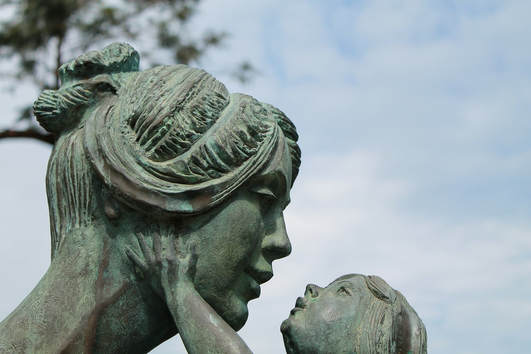 Dear Mama, I ache because I know pieces of your story, and I ache because your daughter was taken from you. I am sorry for all you have been through, and that all of that was not the worst of it. I am sorry that you are now separated from your child, and you don’t know when you will see her again. I am sorry that my government thought it would be the right thing to do to separate your family, and I am sorry that my people, my country voted in these leaders who made these horrific decisions. There is no way we can say enough sorrys; but we must own that a portion of this responsibility is on us. When I think about all that you have been through and all the reasons you tried to come live in the United States, I begin to breathe heavily--the burden feels too much to bear even for me, as a bystander of the story. You are one of the strongest women I know, and you are a warrior. It is so incredibly sad that in this world we focus so much on celebrity gossip and Twitter wars, but I need you to know that there are some of us, a group of us who are focusing on you. There is a group of us, a group I belong to, of Christian women who care. We don’t know exactly what to do, but we are trying to do something. But it’s not just my group who cares, not just my label of religion. There are others who do not identify as Christians and they care too, and I am grateful—GRATEFUL—for them. And I know that God cares. He feels, he weeps, he knows, and he loves you deeply. I know that is much easier for me to say, as I sit in my home writing this with all of my unseparated children here with me behind doors, not behind bars. I know it is much easier for me to say, coming from a life that has suffered so little in comparison to what you have been through. You are right. It is easier for me to say. But I still believe it, and I hope you believe it too. Christ who came to earth without powers, without pedestals, without riches came to make crooked paths straight, to bring justice to a world full of injustice. Oh how I wish he could just ride in on a white stallion and magically, powerfully make all the bad go away and return your children to you at this very second! Yes I do wish that. Maybe you wish it too. Maybe you think that if He doesn’t, He isn’t God. I am tempted to think that too. Please know that he is right there with you. He is the tears you cry and the shoulders you lean on. He is the voice of Hope that says this story is not over. And the Holy Spirit, she is the wind that carries your cries outside of those cell doors and brings them to our ears. She is the breath that comes out of your mouth every moment despite your desire to never speak again; she is the one that covers you with a cloak of justice, the hope that says people reap what they sow. She is the real Lady Liberty that welcomes you onto her land, a place where no one is turned away, where the huddled masses actually do get to breathe free. No, she is not America, she is better. She is greater. So hold onto her, because she reaches out for you. Hold onto her because she brings inexplicable shalom. Hold onto her not because she will make all your nightmares go away, but because she will always lay down next to you and stroke your hair as you attempt to sleep through the nightmares. She takes some of those nightmares and burdens off you and lays them on me. Hold onto her because she is real, and she is love, and your story is not yet over. No this is not the end. Hold on, and when your hands get tired of holding, I will do my best to lift them up. Dear Mama. You are strong. You are stronger than American policies. You are stronger than American politics. You are who we want to be. Hold on, and teach us how to hold on too. Dear Mama, you are loved. Your burden is our burden. We will fight together. 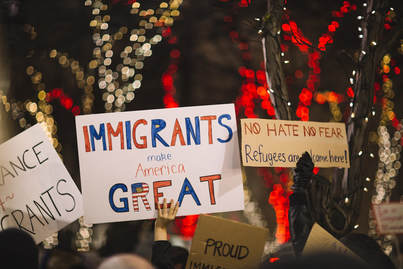 For those of you who know my personal situation, you know how closely the humanitarian crisis of splitting families apart at the border is to my heart. For many reasons, I cannot publicly tell you what’s going on with my family. I have been weeping, weeping this week with every new article I read. Weeping. I have not written about this because there is much I cannot write, many details that cannot be shared. I will do what I need to protect my family, but I cannot stay silent either. As the news continues to arrive from the border, and I break down each time I hear that this is becoming more and more common, I am thankful for those who are on the front line fighting this issue. Thank you, thank you thank you. Thank you. From my current calculations, today, June 5, the government has separated roughly 2,157* children from their parents since October of 2017. For those wishing to get involved somehow or another, here’s a few steps: 1---Support organizations such as @supportKIND @WorldRelief @CCharitiesUSA @HopeBorder @TheimmigProject @TheYoungCenter @RAICESTEXAS @Door_NYC @STRONGYOUTHINC @CarecenDC 2---Read up on what’s going on. Here’s a few articles that you can start with. If you google it, you’ll find a bunch a more: a. 1475 migrant children are unaccounted for, yes that’s right they are unaccounted for: Please keep in mind that this does not necessarily mean they are missing, they are unaccounted for by ORR (Office of Refugee Resettlement). When children are moved from an immigration facility to a sponsorship family, ORR supposedly no longer takes responsibility for the child. However they do call 30 days later to check up on the child. If no one answers that call, they are unaccounted for. This can mean a few things. In some cases, it has been reported that children are trafficked. In other cases, if the child is in a home of an undocumented relative, it could be that the undocumented relative does not want to answer ORR's accounting call because due to new policy measures that allows ORR and ICE to work together, they may get deported. According to an article in Quartz: "There are four levels of sponsors, according to ORR policy, beginning with parents, then siblings and close relatives, then distant relatives or unrelated adults, and finally willing strangers or agencies. Potential sponsors, once identified, must apply for unification with the child and provide evidence of a relationship. If the applicant is approved, the child is released. The ORR tries not to hold kids extensively, and data from 2015 show that children spent an average of 34 days in custody before joining a sponsor.Once a child joins a sponsor, the ORR relinquishes responsibility—that’s what has people up in arms now. The sponsorship agreement essentially leaves it up to the child and their sponsors to show up for further immigration proceedings." Supposedly these are children who have come over traveling alone. In reading more about this, it used to be that ORR did not require documentation checks on sponsorship families, which means that if an undocumented child has an undocumented relative already living in the U.S., they can live with each other. However, due to a recent memorandum of understanding (MOU) between ORR and ICE, "the refugee agency will begin to provide ICE with information, including names, fingerprints, addresses, and phone numbers, on children’s parents or sponsors, as well as of other adults living within the same household, according to a copy of the agreement obtained by The New York Times." I cannot find a date on when that MOU was signed. The above NYT article from May 1, 2018, says "recently signed." Therefore, many undocumented families will not step up to be sponsorship families because of fear that they will be discovered and then deported. This can make situations worse. Bad in that if undocumented children don't have sponsorship families that step up for them, they will likely live in facilities. Bad in that more undocumented immigrants are so scared for their own lives that they cannot take care of their extended families. This interview/article on NPR with former ORR director helps explain why "missing" is misleading. I'm not saying let's not focus on the missing kids. Any child not in a safe and appropriate housing should be fought for. *ANY* what I am saying is that not all 1,475 are in a bad place. Here's a tweet thread that helps explain how this is connected to the below articles. b. The Trump Administration’s Systemic Assault on the Protection of Unaccompanied Children. c. Hundreds of Immigrant Children have been taken from Parents at the U.S. Border d. Catholic advocates denounce US plan to prosecute all illegal border crossings e. Trump says about immigrant children: “They’re not innocent” f. Whatever isn’t an option for immigrant children. g. Families who cross the border won’t stay together 3---Follow the Southern Poverty Law Center, ACLU (who recently filed a class action suit against the government, and has recently published an extensive report of abuses happening to immigrant children), and follow and take a look at Matthew Soerens’ suggestions. 4---Let’s talk about what the Gospel says about refugees and strangers. Let’s talk and talk and talk about this, from the pulpit, behind closed doors, on our blogs, on twitter, and everywhere else. 5---There’s lots of literature to read about this. Books such as Enrique’s Journey, Tell Me How it Ends: An Essay in 40 Questions, Christians at the Border, Welcoming the Stranger, God is Stranger. 6-- Sign this Not Without My Child campaign along with other Christian women "As mothers we are outraged; as Christians we believe this is completely antithetical to loving mercy and doing justice - not to mention biblical hospitality for the stranger." Sign this MoveOn petition. Tell Kirstjen Nielsen, Secretary of the Department of Homeland Security, that separating families at the border is unjustified and cruel. 7---Protest. Take it to the streets. And if you know of any other protests scheduled, please comment or tweet me. 8--Call your House Reps and your Senators and tell them your thoughts. Add in the comments other orgs and other books and other articles (and links to them please) so we can join hands together! PRAY PRAY PRAY. And one thing I’d love to see is Evangelical leaders joining hands with Catholic, Protestant, Jewish, and Muslim leaders to effect change nationally. Any thoughts on how to make that happen? My time is very limited right now, but I will do what I can. If you have thoughts, ideas or you have a big platform and can work on making that happen, I’ll support any way I can. Thank you. Sincerely, Gena *my calculation is based on this NYT article about 700 children taken between OCT and April, and then 658 separated between May 6 and May 19 (which is about 47 per day) which adds another 799 to the total. However, this does not account for any taken in after the NYT article on April 20 and until May 6 when GA Sessions announced the policy. So likely, the number is higher. |
Gena's
|

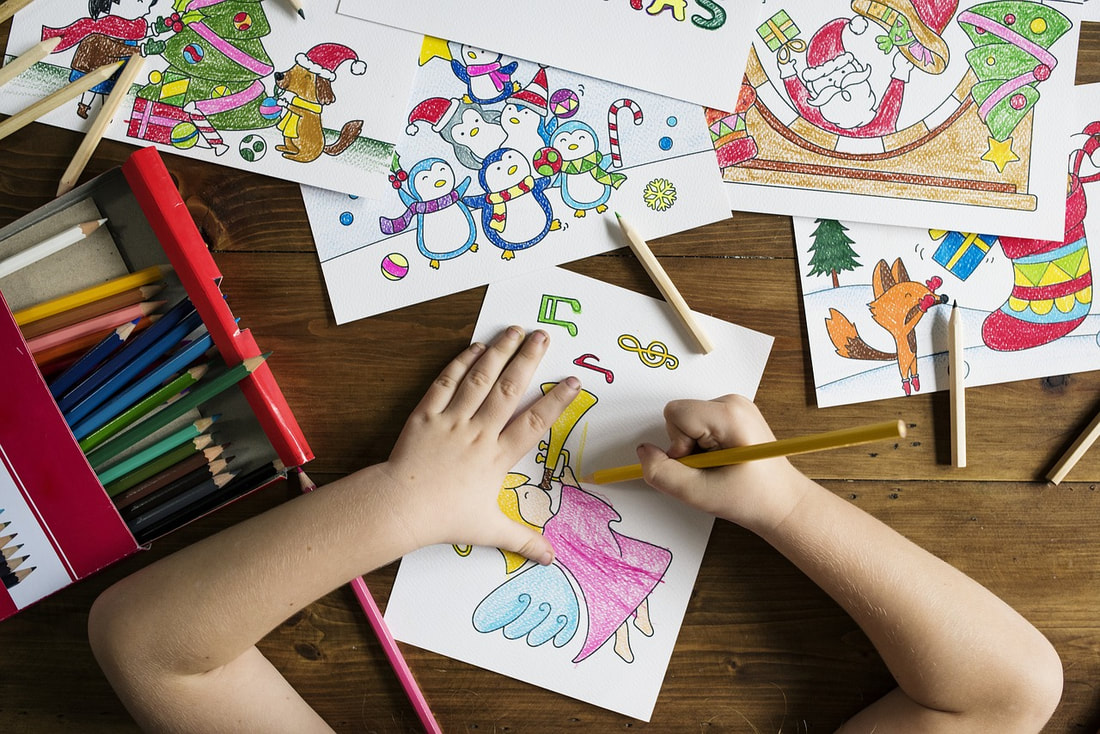
 RSS Feed
RSS Feed

